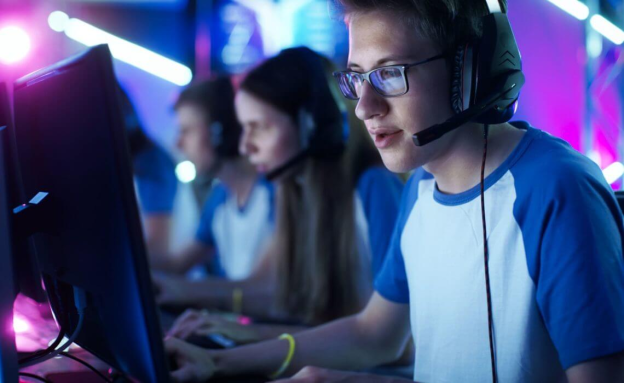Peer pressure, a powerful social force that influences individuals’ behaviors, attitudes, and decisions, extends its reach into the realm of gaming. Whether playing online multiplayer games or engaging in social gaming experiences, players are often susceptible to the influence of their peers, which can impact their decision-making processes and gaming behaviors. In this article, we delve into the complex interplay between peer pressure and decision-making in gaming, exploring how social dynamics shape players’ choices, strategies, and overall gaming experiences at 91-clubb.in.
Understanding Peer Pressure in Gaming:
Social Influence:
Peer pressure in gaming stems from the desire to conform to social norms, gain acceptance from peers, and maintain social status within gaming communities. In multiplayer environments, players may feel compelled to align their actions and decisions with those of their peers to avoid social exclusion, earn respect, or enhance their reputation among fellow gamers. Social influence can manifest in various forms, including direct requests, subtle cues, or implicit expectations from gaming peers.
Normative Influence:
Normative influence refers to the tendency to conform to group norms and expectations to avoid social disapproval or rejection. In gaming, normative influence can shape players’ decisions regarding gameplay strategies, character choices, or in-game behaviors to align with perceived social norms within their gaming communities. Players may adopt certain play styles, emulate popular strategies, or conform to unwritten rules of conduct to gain acceptance and approval from their peers.
Informational Influence:
Informational influence occurs when individuals look to others for guidance or information in ambiguous or uncertain situations. In gaming, players may seek input, advice, or strategies from their peers to improve their performance, overcome challenges, or optimize their gameplay experience. The exchange of knowledge, tips, and strategies among gaming peers can influence players’ decisions, inform their choices, and enhance their understanding of game mechanics and dynamics.
The Impact of Peer Pressure on Decision-Making:
Conformity and Imitation:
Peer pressure in gaming can lead to conformity and imitation as players mimic the actions, behaviors, and strategies of their peers to gain social acceptance or fit in with the group. Players may adopt popular play styles, emulate successful strategies, or conform to prevailing norms of behavior within their gaming communities, even if these actions diverge from their own preferences or instincts.
Risk-Taking and Experimentation:
On the other hand, peer pressure in gaming can also encourage risk-taking and experimentation as players seek to assert their individuality or stand out from the crowd. In competitive gaming environments, players may take calculated risks, try unconventional strategies, or experiment with new play styles to distinguish themselves from their peers and garner attention or admiration within their gaming communities.
Social Facilitation and Collaboration:
Peer pressure in gaming can foster social facilitation and collaboration as players work together, support each other, and collaborate towards common goals or objectives. In cooperative gaming experiences, peer encouragement, praise, or support can motivate players to perform better, persevere through challenges, and achieve collective success. Positive social interactions can enhance players’ enjoyment, engagement, and sense of belonging within their gaming communities.
Conclusion:
Peer pressure is a pervasive social influence that shapes decision-making processes and behaviors in gaming. Whether through conformity, imitation, risk-taking, or collaboration, the influence of peers can profoundly impact players’ gaming experiences and outcomes. By understanding the dynamics of peer pressure in gaming and its influence on decision-making, players can navigate social interactions, assert their individuality, and cultivate positive gaming communities that foster inclusivity, support, and mutual respect among peers.


